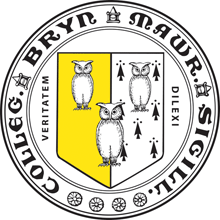 The Computer Science Department at Bryn Mawr College invites you to a special event: Invited Talk on Machine Learning
The Computer Science Department at Bryn Mawr College invites you to a special event: Invited Talk on Machine LearningModeling and Mining Social Networks
Jennifer Neville, Assistant Professor, Purdue University
Wednesday, March 23, 2011 from 4:00-5:00 pm
Park 243 (Physics Lecture Hall), Bryn Mawr College
Abstract:
In the past decade, we have witnessed an explosive growth in the use of the Web and online communities. This has lead to increased interest in mining the resulting social network data, both to advance understanding of human behavior and to exploit the underlying social processes for decision-making. In complex network domains (e.g., communication, friendship, and organizational networks), the relationships are a critical source of information that identify potential statistical dependencies among individuals. These dependencies among linked entities present an opportunity to improve predictions about the properties of individuals, as birds of a feather do indeed flock together. For example, when deciding how to market a product to people in Facebook or LinkedIn, it may be helpful to consider whether a person's friends are likely to purchase/adopt the product.
In this talk, to give an overview of the types of statistical learning and inference challenges in network domains, I will present work from three different, yet related, areas of social network mining. First, I will discuss the issue of how to sample a representative subgraph from a large complex network in order to efficiently study domain characteristics and support development of network systems. Next, I will describe a machine learning method to automatically infer relationship strength (e.g., strong vs. weak) from social activity patterns in online social networks, where the goal is to identify influential relationships and prune away spurious links. Finally, I will discuss how to differentiate the behavioral effects of social influence and homophily in networks changing over time and outline a novel statistical test to determine which effects are significant.
Bio:
Jennifer Neville is an assistant professor at Purdue University with a joint appointment in the Departments of Computer Science and Statistics. She received her PhD from the University of Massachusetts Amherst in 2006. She received a DARPA IPTO Young Investigator Award in 2003 and was selected as a member of the DARPA Computer Science Study Group in 2007. In 2008, she was chosen by IEEE as one of "AI's 10 to watch." Her research focuses on developing data mining and machine learning techniques for relational domains, including citation analysis, fraud detection, and social network analysis.




No comments:
Post a Comment